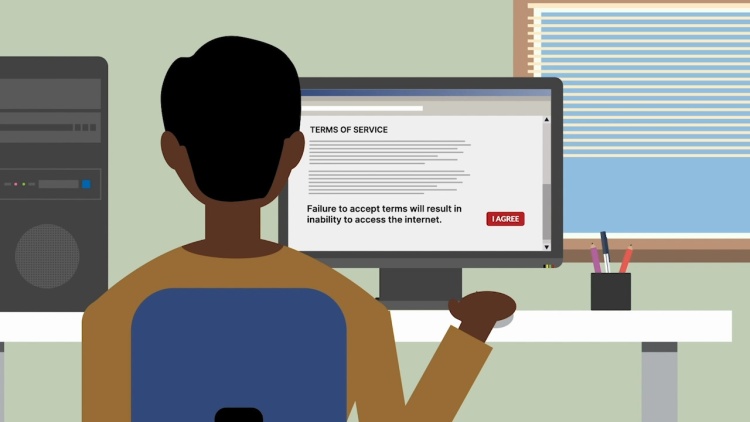Hancock v. American Telephone & Telegraph, Inc.
United States Court of Appeals for the Tenth Circuit
701 F.3d 1248 (2012)

- Written by Sara Rhee, JD
Facts
American Telephone & Telegraph, Inc. (AT&T), Southwestern Bell Telephone Company, and BellSouth Telecommunications, Inc. (defendants) all provide a television (TV), voice-over Internet protocol (Voice), and high speed Internet (Internet) service called U-verse. The terms of service for the TV and Voice U-verse services contain a forum selection clause requiring litigation to take place in the county of Bexar County, Texas. The terms of service for the Internet service require that disputes be resolved in arbitration. A customer who orders U-verse TV and Voice services is given a printed copy of the terms of service by the U-verse technician. After providing the customer an opportunity to review the terms, the technician displays a Terms of Service acceptance form on a laptop and requires the customer to check a box indicating acceptance before beginning installation. Below the box is language informing the customer that he or she is agreeing to the contents of the Terms of Service. For U-verse Internet services, a new customer must complete an online registration, during which the customer is shown a screen that displays the Internet terms of service. The customer cannot access the Internet without acknowledging his or her agreement with the terms of service. Some customers subscribed to the Internet service before the arbitration clause was added in October 2008. AT&T emailed its U-verse Internet subscribers informing them of the addition of the Arbitration Clause. The email stated that the customer’s continued use of the Internet service constituted acceptance of the new terms of service. One of the plaintiffs, Mutzig (plaintiff), was one such subscriber. Generally, the plaintiffs are individuals who subscribed to U-verse services. They brought suit in the United States District Court for the Western District of Oklahoma (Western District) against the defendants based in part upon the Racketeer Influenced and Corrupt Organizations Act. The defendants moved to dismiss, claiming improper venue based upon the plaintiffs’ acceptance of the forum selection clause and/or arbitration clause. The Western District dismissed the plaintiffs’ claims based upon improper venue.
Rule of Law
Issue
Holding and Reasoning (Matheson, J.)
What to do next…
Here's why 911,000 law students have relied on our case briefs:
- Written by law professors and practitioners, not other law students. 47,100 briefs, keyed to 997 casebooks. Top-notch customer support.
- The right amount of information, includes the facts, issues, rule of law, holding and reasoning, and any concurrences and dissents.
- Access in your classes, works on your mobile and tablet. Massive library of related video lessons and high quality multiple-choice questions.
- Easy to use, uniform format for every case brief. Written in plain English, not in legalese. Our briefs summarize and simplify; they don’t just repeat the court’s language.





